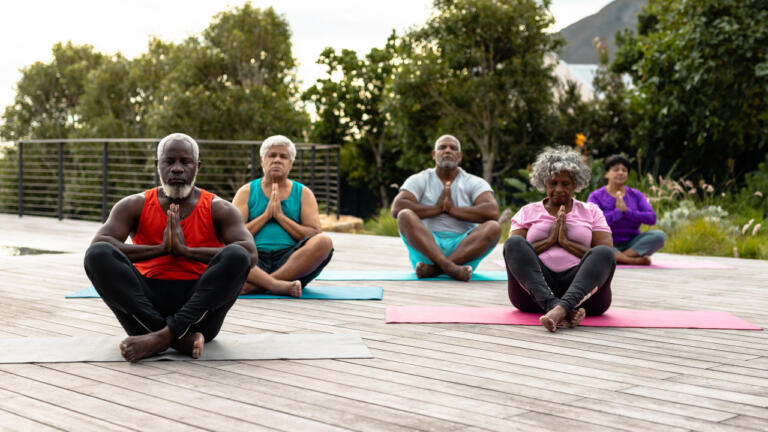“You shall love your neighbor as yourself.” – Matthew 22:39
In a society obsessed with performance, perfection, and people-pleasing, the idea of loving yourself can feel almost rebellious. But make no mistake: self-love is not vanity. It is not self-centeredness. It is foundational. And for those of us who claim any moral compass, especially a faith-based one, it’s a mandate—not an option.
In Matthew 22:39, Jesus makes it plain: love your neighbor as yourself. We talk plenty about loving others, yet we rarely stop to examine the condition of the love we’re offering. If we’re honest, many of us don’t know how to love ourselves in the first place. And that’s the root of the problem.
The Mirror of Our Relationships
How we treat ourselves shapes how we treat others. If we’re hypercritical of our own shortcomings, we’re less likely to offer grace when someone else falls short. If we neglect our mental or physical well-being, we teach others to do the same. And when we’re disconnected from our own needs, desires, and boundaries, our relationships suffer—from our families to our workplaces to our communities.
Loving yourself is not about escaping accountability or avoiding growth. It’s about beginning from a place of inherent worth—acknowledging that before you earn a title, check a box, or impress a soul, you are worthy.
You Were Never Meant to Earn Your Worth
Scripture is clear: you are not a mistake, a project, or a problem to be fixed. “You are fearfully and wonderfully made,” says Psalm 139. But we live in a culture that trains us to hustle for our worth—to tie it to salaries, social media likes, or someone else’s approval. That’s a trap, and one that keeps too many of us stuck in cycles of shame, burnout, and spiritual disconnection.
When we love ourselves, we’re not inflating our ego—we’re acknowledging the divine within us. We’re respecting the creation God made.
Compassion Begins at Home
Ephesians 4:32 reminds us to be “kind and compassionate to one another,” but how often do we extend that same kindness to ourselves?
Let’s be honest: we talk a lot about compassion, but we reserve it for everyone but ourselves. We beat ourselves up over mistakes. We rehearse failures more than we celebrate wins. We compare our lowest moments to others’ highlight reels. That’s not humility—that’s emotional self-harm.
Self-love means speaking to yourself with gentleness. It means forgiving yourself like God already has. It means seeing your wounds not as disqualifiers, but as testimonies.
Caring for Yourself Is a Spiritual Discipline
“Your body is a temple of the Holy Spirit,” says 1 Corinthians 6:19. And yet we routinely neglect it—physically, mentally, emotionally. We push past limits, suppress needs, and call it strength. But there’s nothing holy about burnout. There’s no glory in self-abandonment.
Self-care isn’t selfish. It’s stewardship. It’s saying, “God gave me this life, this body, this mind—and I’m going to honor that gift by taking care of it.”
That means setting boundaries. Saying no. Getting rest. Feeding your body with nourishment and your mind with peace. Worship can happen at the gym, in therapy, or in silence as much as it does in church pews.
Stop Comparing. Start Living.
Social media and capitalism thrive on comparison—on making you believe you’re not enough. But Galatians 6:4 pushes back: “Each one should test their own actions…without comparing themselves to someone else.” That’s not just good advice. That’s survival.
Your journey is not a copy-paste version of anyone else’s. And that’s the point. Your gifts, quirks, and even your scars are uniquely yours—and they matter. They don’t need to be photoshopped or filtered to be valuable. They just need to be embraced.
Self-Love Is Revolutionary
In a world that profits from your insecurity, loving yourself is a radical act. But it’s also a spiritual one.
When we love ourselves, we don’t just become happier. We become healthier. And that health ripples outward. We show up more fully in our relationships. We become better friends, parents, partners, and leaders—not because we’ve finally “fixed” ourselves, but because we’ve accepted ourselves.
“Above all else, guard your heart,” says Proverbs 4:23, “for everything you do flows from it.” If everything flows from the heart, then how we care for that heart—how we talk to ourselves, see ourselves, and believe in ourselves—matters.
The Takeaway
This isn’t self-help fluff. This is soul work. And it’s urgent.
Loving yourself is not some side project you get to once your to-do list is done. It’s the foundation. It’s spiritual alignment. And yes—it’s revolutionary.
So the next time you hear someone quote “love your neighbor as yourself,” don’t skip over the second part. You cannot give what you don’t have. Start with love. Start with you.

